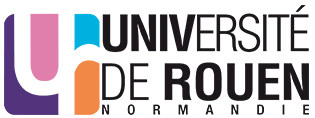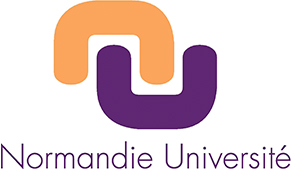Language Change in Epic Greek and other Oral Traditions
Leiden University, 27-29 October, 2016
The language of Homer (epic Greek) was in many respects unlike the Greek vernaculars: it contains linguistic forms from different periods and dialects, as well as numerous artificial forms. Epic Greek is therefore commonly described as an artificial language, a Kunstsprache. However, the language was not created overnight: epic Greek is adapted so well to metrical performance that it must have acquired its shape by gradual changes, introduced over generations of poets. This conference is dedicated to language change in the Greek epic tradition and in other oral traditions.
Throughout the history of Homeric linguistics, much attention has already been paid to the question of dialectal influences on epic Greek, and also (though less prominently) to the issue of artificial word formation. Leiden University Centre for Linguistics currently hosts the research project “Unraveling Homer’s Language”, funded by the Netherlands Organization for Scientific Research (NWO) and conducted by Dr. Lucien van Beek. One of the main questions studied in this project is: to what extent did epic Greek develop autonomously and according to clear principles? In particular, the project investigates whether there is evidence for independent phonological changes within the epic tradition.
This conference, part of the project “Unraveling Homer’s Language”, is dedicated to the following questions:
– In which ways did epic Greek change under external influence (introduction of linguistic features from literary dialects and vernaculars)?
– Which principles of internal linguistic change played a role in the development of epic Greek (artificial word formation, but also the possibility of epic-internal phonetic and phonological developments)?
– What about similar oral traditions, such as Avestan or Vedic? Which internal developments took place in these traditions? Which principles governed the relation between these oral poetic languages and the everyday language of the poets?
Key note speakers will be:
‐ Prof. Alain Blanc (Rouen)
– Prof. Albio Cassio (Roma)
‐ Prof. Jeremy Rau (Harvard)
‐ Prof. Rudolf Wachter (Lausanne)
‐ Prof. Andreas Willi (Oxford)
All contributions are welcomed that study epic Greek or the language of similar oral traditions as autonomous linguistic entities. Papers on the genesis or history of the Homeric (Avestan, Vedic etc.) texts are also welcome, provided that they shed a light on linguistic issues such as those mentioned above. Those interested in submitting an abstract may think of topics such as the following (the list is by no means exhaustive):
• Meter and its influence on formulaic language;
• Prosodic irregularities and their (historical or synchronic) explanation;
• Difference in use and function between isometric alternatives;
• Artificial features in domains like Word Formation, Lexicon (functional synonymy), Syntax, and Phonology;
• Non-Ionic epic lexicon and morphology (Aeolisms, Mycenaean forms, Attic redaction);
• Models for explaining Aeolisms in Homer (Aeolic phase, diffusion, or otherwise);
• Structural differences (e.g. lexical or morphological) between Homeric and Classical (Ionic-Attic) Greek;
• Linguistic comparison between Homeric Greek and other pre-classical sources (e.g. para-epic hexametrical inscriptions, lyric poetry with epic thematics);
• Possible linguistic differences between our oldest textual sources (paradosis, papyri, testimonia) and early oral versions of the poems;
• Etc.
Practical:
‐ The conference will take place in Leiden on 27-29 October, 2016.
‐ Talks will be 20 minutes plus 10 minutes for discussion.
‐ Titles and abstracts are to be submitted no later than Wednesday 15 June, 2016. The abstract should indicate the main line of argumentation and should not exceed one page A4.
‐ Notification of acceptance will be given by Friday 8 July, 2016.
‐ It is our intention to publish conference proceedings in a peer-reviewed series.
‐ A modest conference fee of 20 euros will be charged; this will cover a conference bag, coffee/tea, and lunch. Participation in the conference dinner will approximately cost an additional 35 euros.
We are looking forward to receiving your abstracts.
The organizers,
Lucien van Beek
Alwin Kloekhorst
Sasha Lubotsky
Tijmen Pronk
Contact : alainblanc@club-internet.fr


